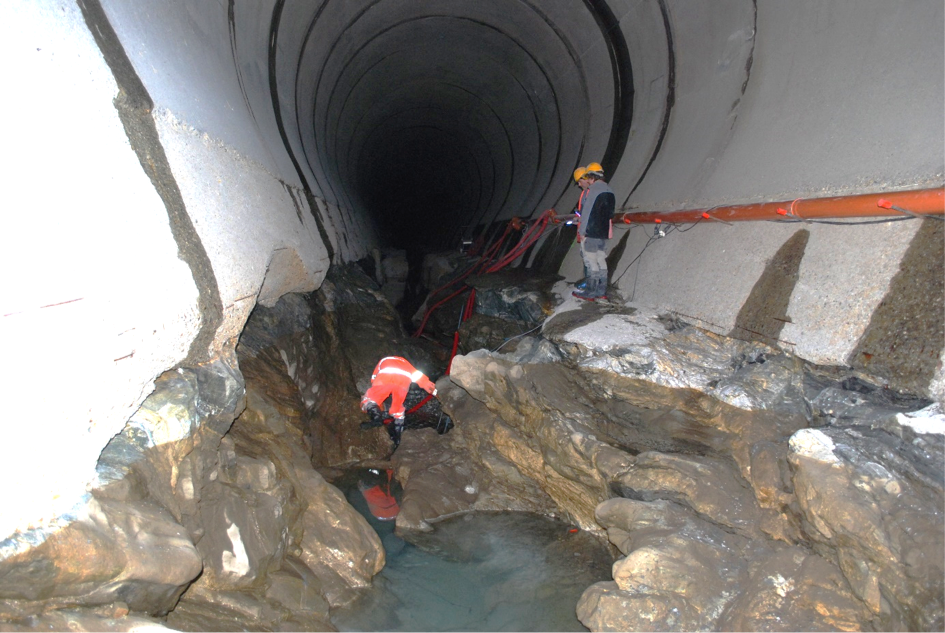Hydroabrasion-resistant materials at sediment bypass tunnels and hydraulic structures
Sediment bypass tunnels (SBT) are subjected to severe invert abrasion due to high flow velocities and sediment transport causing considerable maintenance expenses. This project addresses this problem by testing various invert materials, their durability and life-cycle cost under field and lab conditions and hence contributes to sustainable operation of hydraulic structures.
Within the last century, thousands of dams have been erected worldwide to provide storage capacity for energy production, flood control, water supply, irrigation and more. Due to reservoir sedimentation, storage capacity globally decreases, which endangers the sustainability of reservoirs. SBTs are an effective measure against it. They divert sediments around the reservoir and contribute to a reestablishment of natural sediment continuity. However, high-speed flow and significant sediment transport rates prevailing in SBTs cause severe hydroabrasion on the tunnel invert and provoke expensive maintenance.
There is still a lack of knowledge on the influencing parameters and their interrelations, and a guideline for SBT design and operation is missing.
To fill this research gap, systematic in-situ and laboratory investigations were conducted with a focus on abrasion resistance of different invert materials. The main goals include (1) quantification of operating conditions, sediment transport rate, material properties and abrasion resistance, (2) determination of their mutual relations, (3) validation and calibration of existing abrasion models, and (4) assessment and enhancement of suitable invert materials including recommendations. Thus, this project will contribute to a sustainable design and operation of SBTs and other hydraulic structures.
The project is financed by swisselectric research, cemsuisse, the Swiss Federal Office of Energy and the Lombardi Foundation.

The ESC member involved in this project is Prof. Robert Boes, head of the Laboratory of Hydraulics, Hydrology and Glaciology ,which conducts research and teaching in the fields of hydraulic engineering, river engineering and glaciology. Studies in the areas of hydraulic structures for energy production, irrigation and water supply, protection against natural hazards (flood protection, debris flow, glacial risks, impulse waves) and renaturation of watercourses are complemented by research and services in the areas of dynamics of polar ice streams and glaciers, as well as processes relating to glaciers and climate change.